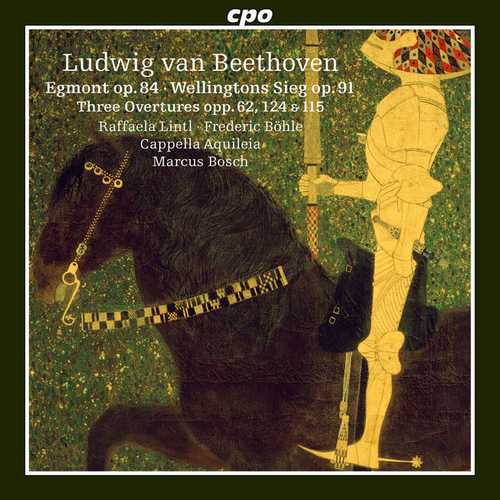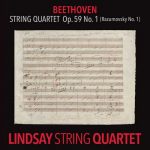
Composer: Ludwig van Beethoven
Performer: Cappella Aquileia, Frederic Böhle, Raffaela Lintl
Conductor: Marcus Bosch
Format: FLAC (tracks)
Label: CPO
Catalogue: 555302-2
Release: 2021
Size: 379 MB
Recovery: +3%
Scan: yes
Egmont, Op. 84 (Adapted S. Knies)
01. Overture
02. Vernommen habt ihr die Töne
Egmont, Op. 84 (Adapted S. Knies)
03. I. Die Trommel gerühret
04. So freue dich, denn kurz ist alle Freude
Egmont, Op. 84 (Adapted S. Knies)
05. II. Entracte I
06. Die List des Herzog Alba, den aus Spanien
Egmont, Op. 84 (Adapted S. Knies)
07. III. Entracte II
08. Freudvoll und leidvoll. Das ist das Los des Lebens und der Liebe
Egmont, Op. 84 (Adapted S. Knies)
09. IV. Freudvoll und leidvoll, gedankenvoll sein
10. V. Entracte III
11. Umgarnt vom Netz des schlauen Jägers
Egmont, Op. 84 (Adapted S. Knies)
12. VI. Entracte IV
13. VII. Clärchens Tod bezeichnend
14. VII. Clärchens Tod bezeichnend
15. VIIIa. Melodrama
16. VIIIb. Ja, führt sie nur zusamme
17. VIII. Siegessymphonie
18. Coriolan Overture, Op. 62
19. Consecration of the House Overture, Op. 124
20. Overtüre zur Namensfeier, Op. 115
Wellingtons Sieg, Op. 91, Pt. 1
21. Die Schlacht
Wellingtons Sieg, Op. 91, Pt. 2
22. Sieges-Symphonie
The compositions on this CD, broadly considered, are connected with Beethoven’s efforts on behalf of the theater, and they also attest to his desire to compose for the larger public without having to lower his standards. The center here is formed by his music for Goethe’s Egmont. The Dutch Count Egmont failed in his resistance against the tyrannous rule of the Duke of Alba and was executed. The decisive factor in Beethoven’s choice of this subject must have been that Goethe himself assigned a dramaturgically important role to music above all at the end of his play, and in his composition Beethoven followed these pretextual givens to the letter. When Egmont, in prison prior to his execution, sees the vision of his beloved Klärchen as the personification of liberty, then Egmont’s words and the musically designed vision join together in a melodrama. The CD also includes three overtures and Wellington’s Victory, in which Beethoven combines the older tradition of the ‘battaglia’, the musical depiction of a battle, with victory pathos. Its effect lies not so much in the masterful treatment of the musical material itself as in the development of a spatial dimension for a realistic battle scene and in the big sound overpowering the listener, in short: in its theatrical character. During Beethoven’s lifetime it was his most successful composition.



